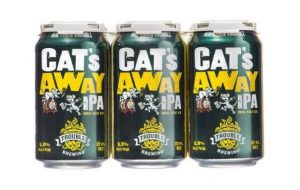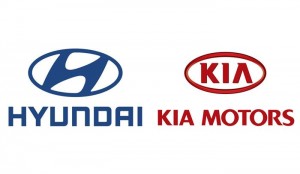 Top Class Action Lawsuits
Top Class Action Lawsuits
Walmart a purveyor of craft beer? Seriously? Maybe not. The world’s largest retailer is facing a consumer fraud class action lawsuit over allegations its craft beer is mass manufactured, and is falsely marketed at an inflated price. You think?
Filed by Matthew Adam of Ohio, the Walmart craft beer lawsuit claims four brands of beer sold by defendant Wal-Mart Stores Inc, are falsely labeled as craft beers. The lawsuit states that the beer is mass-produced at industrial-scale breweries that don’t even resemble what a reasonable consumer would consider a craft brewer.
“Defendant’s Craft Beer has never been a ‘craft beer,’ nor has it been produced by a craft brewery,” Adam claims. “Rather, it is a wholesale fiction created by the Defendant that was designed to deceive consumers into purchasing the Craft Beer at a higher, inflated price.”
According to the complaint, Walmart has been marketing this line of beer since 2016, which includes Cat’s Away IPA, After Party Pale Ale, ‘Round Midnight Belgian White, and Red Flag Amber. Walmart currently stocks these beers at 3,000 retail locations in 45 states.
Further, while Walmart allegedly claims its craft beers are brewed by a company called Trouble Brewing, the Treasury Department lists a company called WX Brands, with the same brewery address as the offices of Genesee Brewing in Rochester, NY. Genesee does not meet the definition of a “craft brewer” put out by the Brewers Association, a trade organization that promotes and protects American craft brewers, the complaint states.
The lawsuit contends that consumers are willing to pay more for beer marketed as craft beer, on the assumption that craft beer is of a higher quality than other beers. Adam claims Walmart craft beer is purposely marketed to exploit that higher dollar value associated with craft beer, when it is, in fact, mass produced.
According to the lawsuit, Adam purchased a 12-pack of Trouble Brewing beer for himself from a Walmart in Sharonville, Ohio. He says he relied on Walmart’s representations that what he was buying was a genuine craft beer. However, the beer was not what he was led to expect, he claims. And he would not have paid a premium price for the beer, had he known the beer he was buying was not actually craft beer.
Adam’s proposed plaintiff Class would include all persons in the state of Ohio who purchased Walmart craft beer. Adam is represented by attorneys Brian T. Giles and Bryce Lenox of Giles Lenox.
The Walmart Craft Beer Class Action Lawsuit is Matthew Adam v. Wal-Mart Stores Inc., Case No. A1700827, in the Court of Common Pleas for Hamilton County, Ohio.
Top Settlements
Kia Sorrento Settlement… Heads up all you current and prior owners and lessees of a Kia Sorento. Kia has reached a proposed settlement in a pending defective automotive class action lawsuit alleging that its Sorento model is prone to catastrophic engine failure. Remember that one?
Here’s the skinny: the lawsuit, known as Yvonne Robinson et. al., v. Kia Motors America, Inc. et. al., alleges that some 2003 to 2006 model year Kia Sorento vehicles with 3.5 liter engines were equipped with a defective crankshaft pulley bolt that, under certain conditions, could result in the bolt breaking. Those vehicles are referred to as the “Class Vehicles”. KMA has not been found liable for any of the claims alleged in this lawsuit. The parties have instead reached a voluntary settlement in order to avoid a lengthy litigation.
Under the proposed Settlement, and subject to proof and certain limitations, KMA will provide certain financial and/or other benefits to Class Members for past and future crankshaft pulley bolt repairs in Class Vehicles.
Purchasers of the 2003-2006 Kia Sorento automobile now have the opportunity to be reimbursed for their expenses if their crank shaft bolt snapped and caused additional engine damage. Part of the Kia Sorrento settlement includes the opportunity for new and used car purchasers of the 2003-2006 Kia Sorento to submit a claim for reimbursement up to $4,900.00.
Kia Motors Company produced over 200,000 Kia Sorentos and current and prior owners and lessees of Class Vehicles, known as “Class Members”, may be entitled to compensation if they submit valid and timely claims that are approved, and provided the settlement agreement receives final court approval.
Got it?
Who’s calling? Wells Fargo? Perhaps not anymore… One Ringy Dingy, and we’re off to the bank—thank you so much. Wells Fargo has reached a proposed $15.7 million settlement in a class action lawsuit brought by a man who claims the bank violated the Telephone Consumer protection Act (TCPA) by allegedly using an autodialer to make calls to some 3.4 million consumers.
If approved, the deal would compensate 3.38 million proposed class members who allegedly received collection calls to their cell phones regarding a retail installment sale contract from Wells Fargo. The calls were made, the suit claims, using an auto dialer, between April 2011 to March 2016.
The settlement amount per class member would be $4.65 each, according to the settlement motion. The lead plaintiff is seeking an incentive award not exceeding $20,000.
According to the lawsuit, Frederick Luster claims Wells Fargo made autodialed calls to his phone number for the past four years in an attempt to collect debts apparently owed by two people he didn’t know. Luster states that at no time did he give permission to Wells Fargo to call his cellphone. However, Wells Fargo made the calls despite being aware that they were violating the TCPA.
“The telephone calls were intentionally, willfully and knowingly initiated,” the complaint states. “The telephone calls were not initiated by accident or mistake.” According to the settlement motion, Wells Fargo maintains that it had prior express consent to call the members of the proposed class.
The case is Luster v. Wells Fargo Dealer Services Inc., case number 1:15-cv-01058, in the U.S. District Court for the Northern District of Georgia.
Ok – That’s a wrap for this week. See you at the bar!

 Top Class Action Lawsuits
Top Class Action Lawsuits
